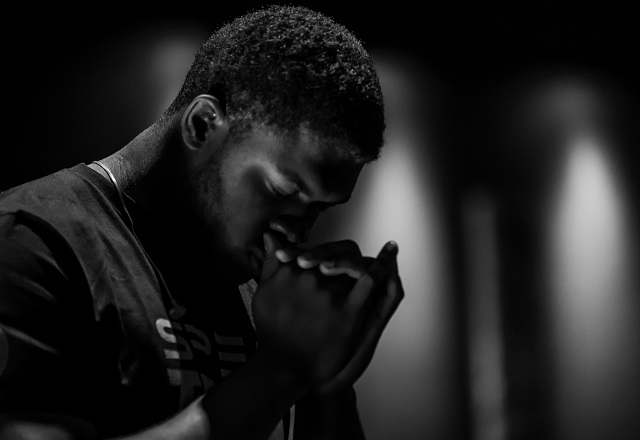Preaching the Gospel of John remains a challenge for many, Dear Working Preachers. A number of reasons contribute to the Fourth Gospel’s homiletical difficulties and this Sunday is an example of one of these reasons.
Sunday’s lection brings to a close what is commonly referred to as Jesus’ “high priestly prayer” with the first two portions of the prayer assigned to Years A and B in the RCL. In other words, three years later, we are finally finishing up the prayer; thus, the challenge — gigantic texts that take three years to get through.
But therein lies one clue to preaching the closing section of Jesus’ prayer — listen to the prayer from the beginning and when you get to this part, remember that Jesus is praying for you.
The outline of the prayer is simple and straightforward — Jesus first prays for himself, then for his present disciples, then for believers yet to be — that is, you and me.
The form and timing make sense. Jesus’ relationship with his Father demands that he pray to God before he crosses the Kidron Valley to give himself up in the garden. He knows what’s ahead and he needs his Father more than ever. He then prays for his disciples, because he knows what’s ahead for them as well. It’s not going to be easy, to say the least, for them to watch Jesus exit the garden and hand himself over. He then prays for us, because he knows it will be hard for us, too. No one wants a savior who dies.
And Jesus’ prayer is a form of prayer, a way to pray, that we can imitate. What if our prayers start with ourselves, then move to those who walk along side us, our fellow believers, those who accompany us in our faith, and then for the world? It’s a structure that just might work in a pinch, when you seem at a loss for words, or just at a loss — period.
I have said this before, but it’s worth saying again: Don’t forget, Dear Working Preachers, that Jesus’ disciples get to hear every single word he prays. Jesus doesn’t go off to pray by himself.
How remarkable that must have been — and can be — to overhear Jesus praying for you. And remember that there is no Lord’s Prayer in the Fourth Gospel. What prayer looks like, when prayer is needed, what prayer should sound like, is what we hear in John 17. These two points alone are fodder for many a sermon.
Yet, where I am landing this time around, is taking Jesus seriously that he prays for me and for the world. I wonder: How and what would Jesus pray?
First of all, I think Jesus’ confidence in the disciples is quite remarkable. He knows that it will be through their witness and their words that others, like me, will come to believe in Jesus. Now that I am a believer, I wonder what Jesus prays to the Father about my belief, my relationship with God. I wonder what I need these days, to be sustained in my believing, to be secure, at least for a little while, about my relationship with God.
How might you answer these questions, Dear Working Preachers? What do you need Jesus to pray for when it comes to your own faith? And maybe, that changes how we pray, at least for the time being — that instead of particularity in our prayer, including specific needs and certain wants, we pray to Jesus, “Jesus, pray for my belief today.” I suspect many of our prayers are quite more detailed than Jesus and God need, as our desire for maintaining a close relationship with God can quickly devolve into a laundry list of demands. I wonder what would happen if we pray, “Jesus, pray for what you think I need,” and trust Jesus, for once, to take it from there.
And what might it sound like if we take Jesus seriously that he prays for the world? Where might he see where the world’s relationship with God has gone astray and what might Jesus say?
What would Jesus pray for:
- those who claim a relationship with God but then divorce themselves from that relationship when it becomes inconvenient?
- those who claim a relationship with God and yet whose actions are devoid of any theological consequence?
- those who claim a relationship with God and yet deem others unworthy of that relationship?
- those who claim a relationship with God, demanding life for all but really they only mean some?
- those who claim a relationship with God, but turn a blind eye to injustice, discrimination, sexism, misogyny, homophobia, transphobia, racism, xenophobia, unwilling to speak up, and thereby seal the certainty of their own complicity in evil?
What might we overhear Jesus’ praying for this world in which we live?
Dear Working Preachers, we do a lot of praying for others. This week, don’t forget that Jesus is praying for you.
Karoline

